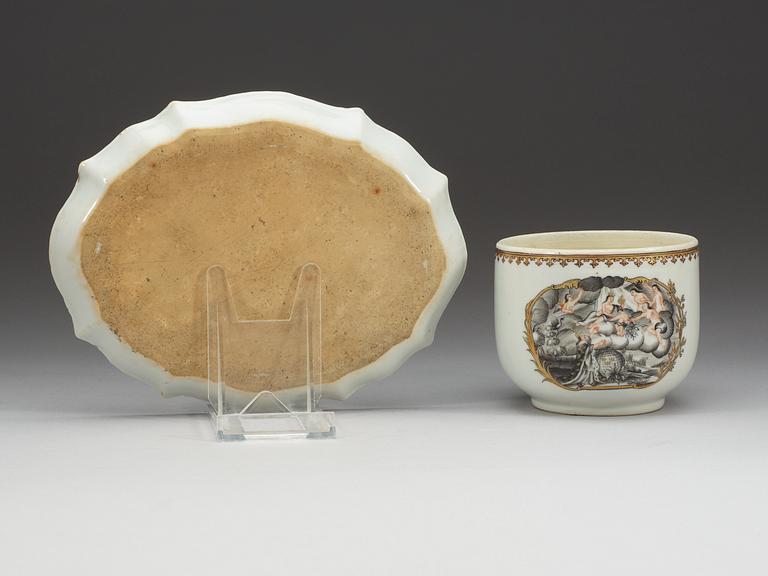A famille rose armorial suger bowl and dish, Qing dynasty, Qianlong (1736-95).
Diameter 11 cm. Lenght 22,5 cm.
Cover missing. Nagg, slitage.
Provenance
King Adolf Fredrik (1710–71) and Queen Lovisa Ulrika (1720–82) of Sweden.
Literature
Livrustkammaren, Kläder för tid och evighet. Gustav III sedd genom sina dräkter, Stockholm 1997, s. 35–38.
Marie-Christine Skuncke, Gustav III – Det offentliga barnet. En prins retoriska och politiska fostran, Stockholm 1993, s. 67, 78, 85.
More information
The service ordered by King Adolf Frederick and Lovisa Ulrika to glorify the hereditary prince Gustavus (III). Very few pieces remains in the Royal Household today but the service is thought to have comprised a tea and coffee service as well as a punchbowl. It is decorated in grisaille and gold after a print by H van de Mij del and A Delfos sculpt 1754. This service is previously thought to depict an allegory of the birth of Gustavus IV Adolf. But on the original print one can see that it is Gustaf (III) and that he is not an infant but a young boy. The woman in the middle with the Royal Crown and the ermeline-lined matel is Mother Svea, by her fee one can se and orb with the Swedish arms. Mother Svea reaches up to receive prins Gustav who is being crowned by the Goddess Juno, with her attribute the peacock. One of the three graces holds out a cornucopia to him. A small nymf, brushes aside the dark cloudes so that the sun can shine down on him. Below the latin text ‘Jam Nova Progenies Coelo Demmititur Alto’ that translates to: fresh from the heavenly heights descents a nobler race. Note that there are two versions of this service that varies in quality. The later is probably an addition to the first and commissioned around 1770.



































